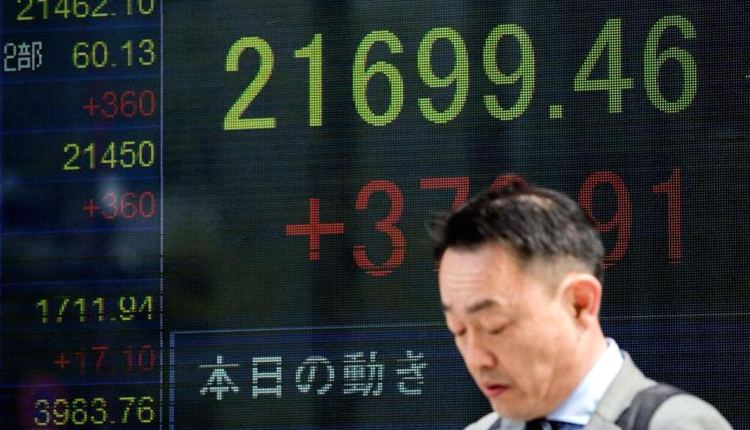Asian markets mostly traded higher Thursday afternoon as investors digest recent developments on U.S.-China trade.
In Japan, the Nikkei 225 gained 0.7 percent in afternoon trade as shares of index heavyweight and robot maker Fanuc jumped more than 2 percent. The Topix index added 0.41 percent.
Mainland Chinese stocks edged higher by the afternoon, with the Shanghai composite up 0.32 percent and the Shenzhen component gaining 0.62 percent. The Shenzhen composite added 0.635 percent. Hong Kong’s Hang Seng index gained 0.33 percent.
Meanwhile, shares in Australia also advanced after leading losses among regional markets on Wednesday, with the S&P/ASX 200 gaining 1.06 percent.
Data from the Australian Bureau of Statistics released Thursday showed retail sales in the country were largely flat from the previous month on a seasonally adjusted basis. That was below expectations for a 0.3% increase from a Reuters poll.
South Korea’s Kospi, on the other hand, lagged as it slipped 0.47 percent.
Overall, the MSCI Asia ex-Japan index traded 0.41 percent higher.
On the economic front, the Reserve Bank of India is expected to announce its interest rate decision at 2:15 p.m. HK/SIN.
US-China trade confusion
Investor reacted to overnight developments on U.S.-China trade, after a news report from Bloomberg said Washington and Beijing were edging closer to a trade deal.
The Bloomberg report, which cited people familiar with the talks, said the two countries were moving closer to agreeing on the amount of tariffs that would be rolled back in a so-called phase-one trade deal. U.S. President Donald Trump also said Wednesday trade talks with China were going well.
That came just a day after Trump said Tuesday he may delay a trade deal with China till after the 2020 U.S. presidential election, leading to a sell-off across markets globally. The recent developments come ahead of a closely watched date of Dec. 15, when additional tariffs on Chinese exports to the U.S. are set to go into effect.
″(Trump) likes to keep everybody off balance,” William Reinsch, senior adviser and Scholl chair in international business at CSIS, told CNBC’s “Squawk Box” on Thursday.
“We’re headed into a deadline. He has to make a decision about more tariffs by December 15th, so I think he wants to do things that will … keep the Chinese off balance, keep them confused, and keep the pressure on,” Reinsch said.
“The tariffs are crucial, it’s one of our key risks that we see in the market,” Adrian Zuercher, head of Asia-Pacific asset allocation at UBS Global Wealth Management, told CNBC’s “Street Signs” on Thursday. “We see a relatively good chance that there’s a sort of first phase deal and maybe the December tariffs get pushed out or actually even removed.”
Overnight stateside, the major indexes rebounded from a 3-day losing streak following the Bloomberg report.
The Dow Jones Industrial Average closed 146.97 points higher at 27,649.78 while the S&P 500 gained 0.6 percent to end its trading day at 3,112.76. The Nasdaq Composite advanced 0.5 percent to close at 8,566.67.
Currencies and oil
The U.S. dollar index, which tracks the greenback against a basket of its peers, was last at 97.549 after seeing highs above 97.7 yesterday.
The Japanese yen traded at 108.85 against the dollar after weakening from levels below 108.5 yesterday. The Australian dollar changed hands at $0.6835 after bouncing from lows around $0.681 in the previous session.
Oil dipped in the afternoon of Asian trading hours, with international benchmark Brent crude futures 0.14 percent lower at $62.91 per barrel. U.S. crude futures declined 0.38 percent to $58.21 per barrel.
Source: CNBC



